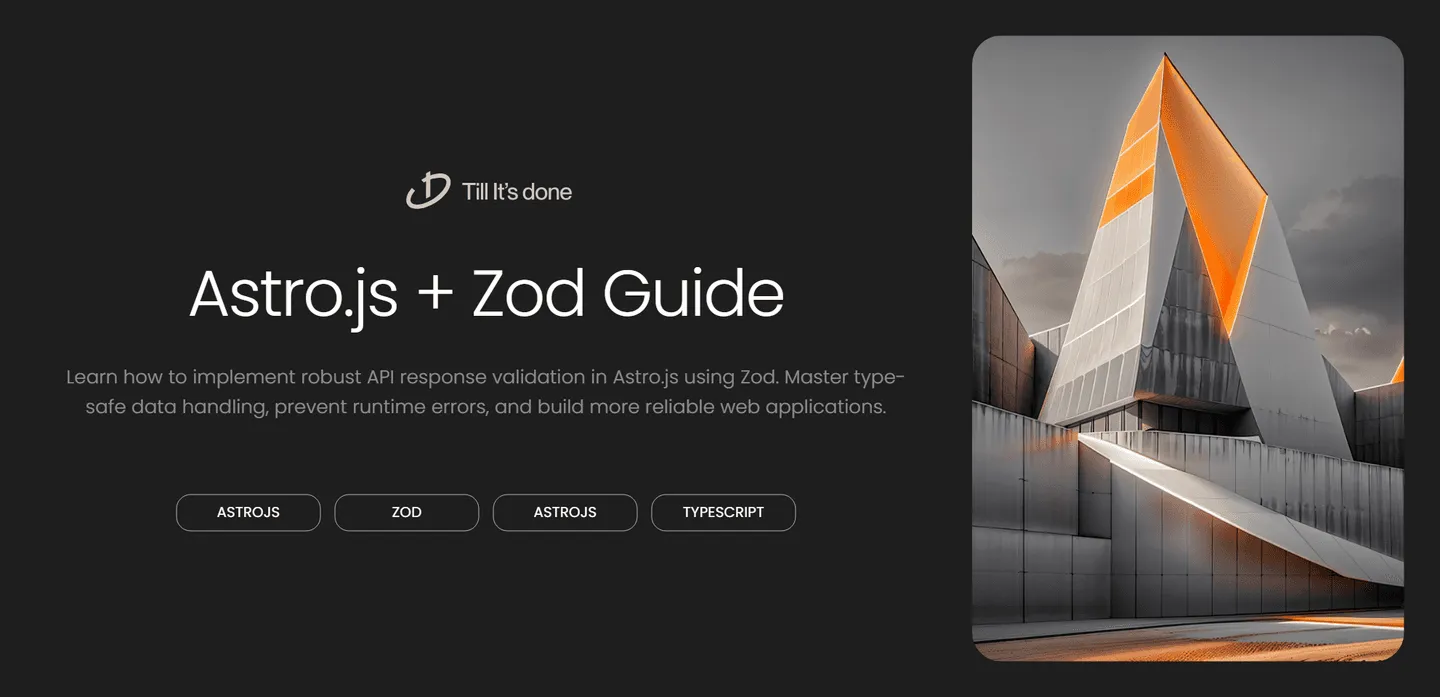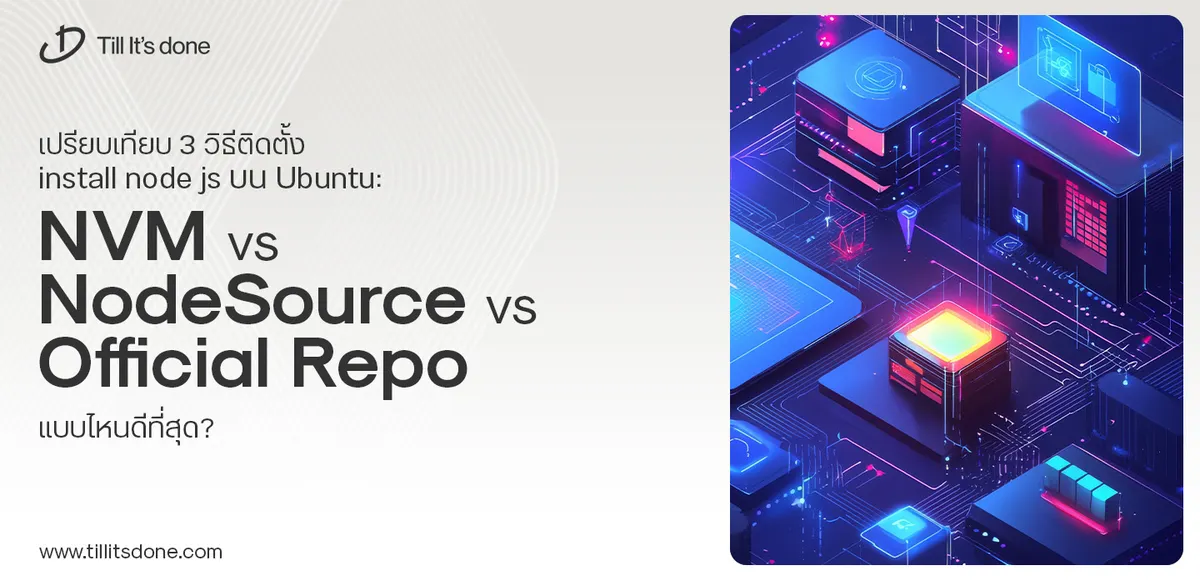- Services
- Case Studies
- Technologies
- NextJs development
- Flutter development
- NodeJs development
- ReactJs development
- About
- Contact
- Tools
- Blogs
- FAQ
Validating API Responses with Zod in Astro.js
Master type-safe data handling, prevent runtime errors, and build more reliable web applications.


In the world of modern web development, handling API responses safely isn’t just a best practice—it’s essential. Today, we’ll explore how to leverage Zod’s powerful validation capabilities in your Astro.js applications to ensure your data is exactly what you expect it to be.
Let’s dive into an elegant solution that will help you sleep better at night, knowing your application won’t break due to unexpected API responses.
Why Zod for API Validation?
When fetching data from external APIs, we often trust that the response will match our expectations. However, in the real world, APIs can change, return unexpected data, or even fail in ways we didn’t anticipate. This is where Zod shines, offering a robust solution for runtime type validation.

Setting Up Zod in Your Astro Project
First, let’s add Zod to your Astro.js project. The setup is straightforward:
npm install zodCreating Your First Schema
Let’s say we’re building a blog platform and fetching post data from an API. Here’s how we can define a schema for our blog posts:
import { z } from 'zod';
const PostSchema = z.object({ id: z.number(), title: z.string(), content: z.string(), publishedAt: z.string().datetime(), author: z.object({ name: z.string(), email: z.string().email() })});
type Post = z.infer<typeof PostSchema>;Implementing Validation in Astro Routes
Now, let’s put this into practice in an Astro route:
---import { z } from 'zod';
const PostSchema = z.object({ // ... schema definition ...});
async function fetchPost(id: number) { try { const response = await fetch(`https://api.example.com/posts/${id}`); const data = await response.json();
// Validate the response const validatedPost = PostSchema.parse(data); return validatedPost; } catch (error) { if (error instanceof z.ZodError) { console.error('Validation error:', error.errors); return null; } throw error; }}
const post = await fetchPost(1);---
{post ? ( <article> <h1>{post.title}</h1> <p>{post.content}</p> </article>) : ( <p>Post not found or invalid</p>)}
Advanced Validation Techniques
Zod offers more advanced features that can make your validation even more robust:
const ApiResponse = z.object({ data: z.array(PostSchema), metadata: z.object({ totalPages: z.number(), currentPage: z.number(), itemsPerPage: z.number() }).optional(), status: z.enum(['success', 'error'])});Error Handling and User Feedback
When validation fails, provide meaningful feedback to your users while logging the details for debugging:
try { const validated = ApiResponse.parse(data);} catch (error) { if (error instanceof z.ZodError) { // Log the error details for debugging console.error('Validation failed:', error.errors);
// Show user-friendly message return { status: 400, body: { message: 'Unable to process the data. Please try again later.' } }; }}Conclusion
By implementing Zod validation in your Astro.js applications, you’re adding a crucial layer of type safety that protects your application from unexpected data structures. This not only prevents runtime errors but also makes your codebase more maintainable and robust.
Remember, the small overhead of setting up proper validation pays off immensely in the long run by catching issues early and providing clear error messages when things go wrong.

 สร้างเว็บไซต์ 1 เว็บ ต้องใช้งบเท่าไหร่? เจาะลึกทุกองค์ประกอบ website development cost อยากสร้างเว็บไซต์แต่ไม่มั่นใจในเรื่องของงบประมาณ อ่านสรุปเจาะลึกตั้งแต่ดีไซน์, ฟังก์ชัน และการดูแล พร้อมตัวอย่างงบจริงจาก Till it’s done ที่แผนชัด งบไม่บานปลายแน่นอน
สร้างเว็บไซต์ 1 เว็บ ต้องใช้งบเท่าไหร่? เจาะลึกทุกองค์ประกอบ website development cost อยากสร้างเว็บไซต์แต่ไม่มั่นใจในเรื่องของงบประมาณ อ่านสรุปเจาะลึกตั้งแต่ดีไซน์, ฟังก์ชัน และการดูแล พร้อมตัวอย่างงบจริงจาก Till it’s done ที่แผนชัด งบไม่บานปลายแน่นอน  Next.js สอน 14 ขั้นตอนเบื้องต้น: สร้างโปรเจกต์แรกใน 30 นาที เริ่มต้นกับ Next.js ใน 14 ขั้นตอนเพียงแค่ 30 นาที พร้อม SSR/SSG และ API Routes ด้วยตัวอย่างโค้ดง่าย ๆ อ่านต่อเพื่อสร้างโปรเจ็กต์แรกได้ทันทีที่นี่
Next.js สอน 14 ขั้นตอนเบื้องต้น: สร้างโปรเจกต์แรกใน 30 นาที เริ่มต้นกับ Next.js ใน 14 ขั้นตอนเพียงแค่ 30 นาที พร้อม SSR/SSG และ API Routes ด้วยตัวอย่างโค้ดง่าย ๆ อ่านต่อเพื่อสร้างโปรเจ็กต์แรกได้ทันทีที่นี่  วิธีสมัคร Apple Developer Account เพื่อนำแอปขึ้น App Store ทีละขั้นตอน อยากปล่อยแอปบน App Store ระดับโลก มาอ่านคู่มือสมัคร Apple Developer Account พร้อมเคล็ดลับ TestFlight และวิธีอัปโหลดที่ง่ายในบทความเดียวนี้ได้เลย
วิธีสมัคร Apple Developer Account เพื่อนำแอปขึ้น App Store ทีละขั้นตอน อยากปล่อยแอปบน App Store ระดับโลก มาอ่านคู่มือสมัคร Apple Developer Account พร้อมเคล็ดลับ TestFlight และวิธีอัปโหลดที่ง่ายในบทความเดียวนี้ได้เลย  TypeScript Interface คืออะไร? อธิบายพร้อมวิธีใช้และข้อแตกต่างจาก Type เรียนรู้วิธีใช้ TypeScript Interface เพื่อสร้างโครงสร้างข้อมูลที่ปลอดภัยและเข้าใจง่าย พร้อมเปรียบเทียบข้อดีข้อแตกต่างกับ Type ที่คุณต้องรู้ ถูกรวมเอาไว้ในบทความนี้แล้ว
TypeScript Interface คืออะไร? อธิบายพร้อมวิธีใช้และข้อแตกต่างจาก Type เรียนรู้วิธีใช้ TypeScript Interface เพื่อสร้างโครงสร้างข้อมูลที่ปลอดภัยและเข้าใจง่าย พร้อมเปรียบเทียบข้อดีข้อแตกต่างกับ Type ที่คุณต้องรู้ ถูกรวมเอาไว้ในบทความนี้แล้ว  Material-UI (MUI) คืออะไร อยากสร้าง UI สวยงามและเป็นมืออาชีพในเวลาอันรวดเร็วใช่ไหม มาทำความรู้จักกับ Material-UI (MUI) ที่ช่วยให้คุณพัฒนาแอปพลิเคชันบน React ได้ง่ายและดูดีในทุกอุปกรณ์
Material-UI (MUI) คืออะไร อยากสร้าง UI สวยงามและเป็นมืออาชีพในเวลาอันรวดเร็วใช่ไหม มาทำความรู้จักกับ Material-UI (MUI) ที่ช่วยให้คุณพัฒนาแอปพลิเคชันบน React ได้ง่ายและดูดีในทุกอุปกรณ์  เปรียบเทียบ 3 วิธีติดตั้ง install node js บน Ubuntu: NVM vs NodeSource vs Official Repo แบบไหนดีที่สุด? เรียนรู้วิธีติดตั้ง Node.js บน Ubuntu ด้วย NVM, NodeSource หรือ Official Repo เลือกวิธีที่เหมาะกับความต้องการของคุณ พร้อมเปรียบเทียบ เพื่อการพัฒนาที่มีประสิทธิภาพ!
เปรียบเทียบ 3 วิธีติดตั้ง install node js บน Ubuntu: NVM vs NodeSource vs Official Repo แบบไหนดีที่สุด? เรียนรู้วิธีติดตั้ง Node.js บน Ubuntu ด้วย NVM, NodeSource หรือ Official Repo เลือกวิธีที่เหมาะกับความต้องการของคุณ พร้อมเปรียบเทียบ เพื่อการพัฒนาที่มีประสิทธิภาพ! พูดคุยกับซีอีโอ
We'll be right here with you every step of the way.
We'll be here, prepared to commence this promising collaboration.
Whether you're curious about features, warranties, or shopping policies, we provide comprehensive answers to assist you.


